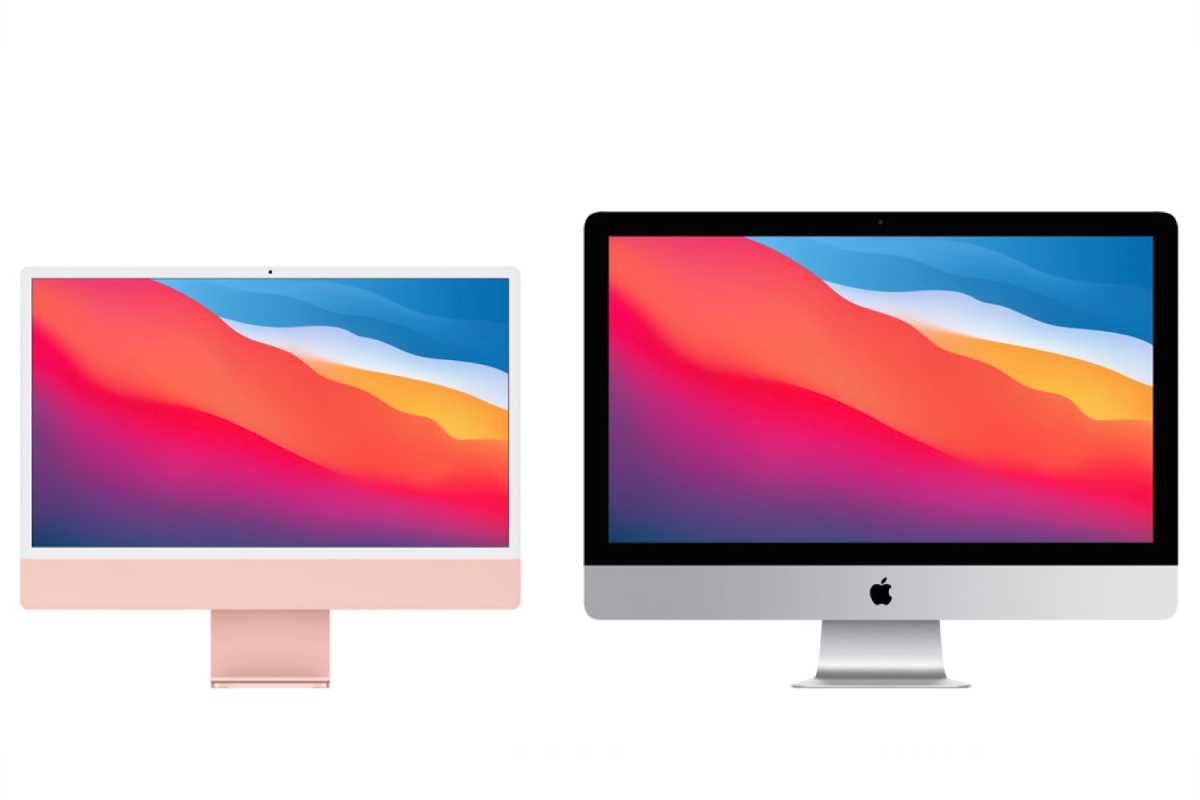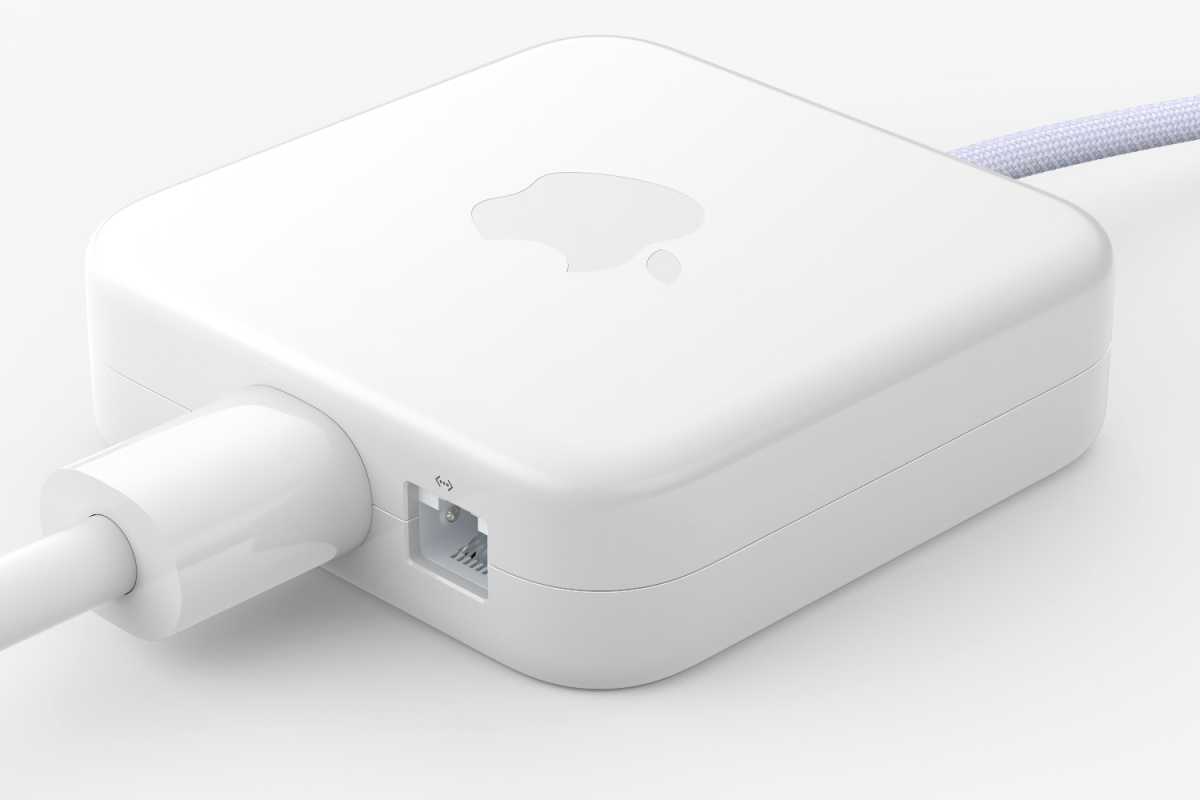
Prior to March 2022 Apple sold two sizes of its iMac desktop computer. The smaller model was more suited to home users due to its less powerful processor, while the larger 27-inch model, with more speed and higher-end features, was meant to be powerful enough for more demanding users.
When Apple introduced the 24-inch iMac in 2021 with a colorful redesign and M1 chip, it was the beginning of the end for the high-end version. First Apple discontinued the iMac Pro, and a year later introduced the Mac Studio with the 27-inch Studio Display in March 2022 and discontinued the 27-inch iMac at the same time.
But the story doesn’t end there. Ever since it was retired, there have been rumors that Apple has plans to introduce a new version of the iMac Pro that would also mark the return of the 27-inch iMac–although it could have an even bigger screen, perhaps 32-inches! In this article, we’ll evaluate the reports that suggest that Apple could revive the old brand with a brand-new iMac Pro. Read on to find out when it could launch and what features it might offer.
Is there even a need for a new iMac Pro now the Mac Studio has arrived? We think there will always be room for a pro desktop with a large screen built in. See: How the iMac Pro could come out of retirement to dominate the desktop.
Update October 20: Ming-Chi Kuo believes Apple is working on a “higher-end” iMac with a 32-inch mini-LED display, but it may not launch until 2025.
Is a new 27-inch iMac Pro coming out?
The rumors that Apple would revive the iMac Pro have been circulating for years. Back in October 2021, in a tweet that is no longer online, retired Apple leaker Dylan made predictions about an iMac Pro. Clearly, Dylan was incorrect about this prediction, but even if we discount him, others have also claimed that Apple is working on a new iMac Pro.
Analyst Ming-Chi Kuo made predictions about a new iMac Pro back in March 2022. Suggesting that Apple would ship an iMac Pro in 2023. However, that prediction came just before Apple introduced the Mac Studio and removed the 27-inch iMac from the lineup.
Kuo had been quiet about the new iMac, until October 18, 2023, when he tweeted that a 32-inch iMac could arrive in 2025.
It’s not only Kuo who sees a larger iMac in Apple’s future. Bloomberg’s Mark Gurman wrote in April 2022 (after the launch of the Mac Studio): “For those asking, I still think an iMac Pro is coming. It just won’t be anytime soon.”
In June 2023 Gurman mentioned the larger iMac again in a weekend newsletter. He claimed that Apple “is also conducting early work on an iMac with a screen over 30 inches.”
In July 2022 a report on Macrumors, based on information shared by a source to a forum member—so we can’t vouch for its accuracy—suggested that “Apple prototyped at least three larger iMac models with Apple silicon chips” in 2021.
If these reports are true Apple has been working on a replacement for the 27-inch iMac (and iMac Pro) for some time, and yet nothing has materialized. It seems that there are difficulties that are leading to delays. In December 2022, Gurman indicated that the iMac Pro had been delayed, citing (as with the new Mac Pro) high development costs and difficulties engineering chips as the cause of the delay. In his first newsletter of 2023, Gurman also wrote that the iMac Pro “has been on and off Apple’s road map”, and that “I would be surprised at this point if it arrives in 2023”.
LeaksApplePro (via Howtoisolve) was more optimistic, claiming, in January 2023, that a new iMac Pro, with M2 Pro and M2 Max processors, would be released in 2023. This clearly didn’t happen and LeaksApplePro came under criticism from Bloomberg’s Mark Gurman, who called him a troll.
Mac Otakara has also reported in October 2023 that a new iMac with an M2 Pro chip could be released, but the blog does not cite sources, only that shipments for the current M1 iMac are delayed.
27-inch iMac Pro: Release date
When Gurman referred to the big iMac in July he claimed that the 32-inch iMac has entered the early testing phase of development and could launch in late 2024 at the absolute earliest, although we could be waiting until 2025.
Kuo’s October 2023 tweet also indicates that we might have to wait until 2025.
Before this new iMac with a larger screen appears Apple is expected to launch an M3-powered iMac, perhaps in late 2023 or early 2024.
If the new 27-inch iMac (or larger) arrives in 2025 that will be three years after the equivalent model was discontinued. That’s a long hiatus.
27-inch iMac Pro: Design and colors
In a July 31, 2021 newsletter, Bloomberg’s Mark Gurman suggested that the new iMac Pro will have “a similar design to the current M1 iMac.”
It makes sense that the iMac Pro will borrow some of its design inspiration from the 24-inch iMac. Apple offers the 24-inch iMac in several color choices, but there haven’t been reports on what color choices Apple will use for the iMac Pro. To create a differentiation between the consumer and pro levels, Apple may decide on different color choices as with the iPhone Pro, or stick with the traditional silver like that on the 27-inch iMac or Space Gray as on the discontinued iMac Pro.
Another difference we could see on the larger iMac is dark bezels rather than a white border around the screen. There may also be a notch as there is with the 14-inch and 16-inch MacBook Pro. This could allow Apple to extend the height of the screen as it has with these models. We’d also like to see the iMac Pro lose some of its “chin.” Based on teardowns of the iMac and the Studio Display, and the low power and heat requirements of Apple silicon, a chinless iMac Pro could be possible.

The next large iMac Pro will probably look nothing like the current 27-inch model (right) and more like the 24-inch iMac (left).
Apple
27-inch iMac Pro: Display size
Display analyst Ross Young and others had stated that the iMac Pro will have a 27-inch display, which we have to admit to being disappointed by. However, in June 2023 Bloomberg’s Mark Gurman indicated that he had information suggesting that Apple is developing an iMac with a screen larger than 30-inches. He then elaborated further a few weeks later suggesting that a giant 32-inch iMac is reportedly in testing. Currently, the 32-inch Pro Display XDR is Apple’s largest display.
Kuo agrees that this new larger iMac could have a 32-inch display, as per the October tweet. Kuo doesn’t expand on the screen specs, but it will presumably have ProMotion and XDR (Extreme Dynamic Range).
A larger display would certainly make the iMac Pro more attractive to potential buyers. Next to the 24-inch iMac, with its 4.5K display (4,480 x 2,520 pixels), the 27-inch iMac only looks slightly more impressive with its 5K display (5,120 x 2,880 pixels). But it’s not only the 24-inch iMac that the iMac Pro will be compared to. The 27-inch screen also doesn’t compare particularly favorably with many modern displays that are larger than 30-inch (including the 32-inch, 6K Apple Pro Display XDR). We would like to see a 32-inch display on the new iMac Pro.
Gurman has previously predicted that the 27-inch iMac could see its display size increase by a similar amount to the 24-inch iMac: “I absolutely still believe that a larger, redesigned iMac to replace the Intel 27-inch models is en route. Apple increasing the screen size of the smaller model from 21.5 inches to 24 inches seems to indicate that the 27-inch model could see a size increase as well,” he wrote in July 2021.
A larger display could be possible without increasing the size of the iMac significantly. The 27-inch iMac measured 25.6-inches wide, 20.3-inches tall, and 8-inches deep, and Apple’s new design helps make the 24-inch iMac smaller than even the 21.5-inch iMac it replaced (21.5-inches x 18.1-inches x 5.8-inches vs. 20.8-inches x 17.7-inches x 6.9-inches). Apple could also incorporate a notch into the top of the screen to accommodate the FaceTime camera, thereby reducing the size of the bezel at the top of the screen.
The new iMac Pro wouldn’t actually need to be as big as the Pro Display XDR to offer a 6K display. A 30-inch display with smaller bezels could still accommodate the 6,016 x 3,384 pixels for Retina 6K resolution and a 6K iMac.
It is possible that the screen of the iMac may be more comparable to the quality of the current 27-inch Studio Display, which lacks ProMotion and HDR, but these are both features that would be beneficial to an iMac Pro user. Apple has added those features to its other Pro devices–iPhone, iPad, MacBook, we’d like to see them here too.
To get an idea of what we could expect with the display in the larger iMac if Apple takes it beyond the Studio Display we can look at how it compares to Apple’s Pro Display XDR.
- Pro Display XDR: 6K Retina display (6,016-by-3,384 resolution), 1,000 nits (XDR) or 500 nits (SDR) brightness, wide color (P3), True Tone
- Studio Display: 5K Retina display (5,120-by-2,880 resolution), 600 nits, wide color (P3), True Tone
The upcoming larger iMac is likely to have smaller bezels than the 27-inch iMac and iMac Pro, which could help the display reach a higher pixel density without having to make the display much bigger. A rumor by Ross Young in October 2021 and a follow-up report in December 2021 claimed that Apple will bring a Liquid Retina XDR display with “around 1,000 zones and over 4,000 mini-LEDs” to the iMac. That would be fewer than the 10,000 mini-LEDs in the iPad and the 8,000 mini-LEDs in the MacBook Pro, though it would likely be visually indistinguishable due to the size and viewing distance.

The 27-inch iMac has a nano-texture glass option (right) that does a better job of resisting glare and reflections.
IDG
The 27-inch iMac used to ship with standard glass on the front of the display, but (for $300) Apple offered a nano-texture glass that provided a matte-like finish and did a good job of cutting down glare. Apple will probably continue to offer this with the new iMac Pro. As you can see above, it dramatically cuts down on the gloss and glare.
27-inch iMac Pro: CPU and GPU
Bloomberg’s Mark Gurman reported back in January 2022 that the iMac Pro would have “similar chips to the M1 Pro and M1 Max processors inside of the MacBook Pro.” That rumor came before the launch of the Mac Studio, which did ship with M1 Pro and M1 Max chips, so it seems likely that Gurman’s source was referring to that machine.
With the next 24-inch iMac expected to skip the M2 and move straight to M3 chips, it looks likely that if Apple launches a larger iMac it will feature the M3 Pro – or if it doesn’t launch until 2025, an M4 Pro.
If the iMac Pro features the M3 Pro what kind of specs can we expect? In a Power On newsletter in May 2023, Bloomberg’s Mark Gurman wrote that a version of the chip seen in testing offers a 12-core CPU, 18-core GPU and 36GB of memory. That’s with six high-performance cores and six efficiency cores. Gurman suggests that this is “likely is the base-level version of what will be the M3 Pro coming next year”.
He later indicated the following specs for the M3 Pro: 12 or 14 CPU cores (6 or 8 performance, 6 efficiency), 18 or 20 GPU cores.
The standard M2 Pro offers 10-core CPU, 16-core GPU and 16GB RAM. The new specs represent a similar leap as the one from the M1 Pro to M2 Pro. Read about what to expect from the M3.
Will this iMac only offer the M3 Pro, or will it offer the M3 Max too? It’s unclear but the expectation is that Apple will differentiate the Mac Studio and Mac Pro from the iMac Pro by offering just the M3 Pro with that model, as it does with the Mac mini.
27-inch iMac Pro: RAM
The M2 Pro can support up to 32GB RAM while the M2 Max can support up to 96GB Unified Memory. This is less than the 128GB RAM that was supported by the 27-inch iMac. This could be a disappointment to users.
Gurman notes that Apple could be changing the unified memory configurations because the MacBook Pros spotted in testing have 36GB and 48GB memory. Currently, Apple offers 16GB, 32GB, 64GB, and 96GB configurations for the M2 Pro and M2 Max.
One limitation of Apple’s RAM is that it will not be user upgradable. The 27-inch iMac had RAM slots that were user-accessible. With Apple silicon RAM – properly called Unified Memory – is built into the SoC, so it is not user upgradable.
The maximum amount of RAM offered by Apple is 192GB unified memory in the M2 Ultra Mac Studio and Mac Pro.
27-inch iMac Pro: Storage
Dylan’s October 2021 tweet also suggested that there will be 512GB storage as standard with the new iMac (Pro).
That would be an improvement on the 256GB offered by the entry-level 27in iMac prior to it being retired. But it would follow the pattern of the 16-inch MacBook Pro, which has 512GB and 1TB options for the standard machines (and 8TB as a build-to-order option).
27-inch iMac Pro: Ports and expansion
The 24-inch iMac comes with two USB 3 ports, two Thunderbolt 4 ports, and a headphone jack. After Apple launched the MacBook Pro with HDMI and an SDXC card slot, rumors suggested the iMac would follow suit. The thin enclosure could be an issue, but Apple solved that issue on the 24-inch model by putting the headphone jack on the side. Apple could position the SD slot similarly to avoid making the iMac thicker.
Thunderbolt 5 is now on the horizon so we may see that in this Pro iMac. Thunderbolt 5 offers double the bandwidth at 80 Gbps.
For all but the entry-level 24-inch iMac, Apple placed the ethernet port in the power adapter brick. The same power adapter is likely to be used for the larger iMac as well.

The ethernet-equipped power adapter will probably be standard with the larger iMac Pro.
Apple
27-inch iMac Pro: Other features
The 24-inch iMac has an improved FaceTime camera that uses the M1’s ISP to provide better image quality. That same FaceTime camera implementation is expected for the larger iMac Pro as well.
We’d like to see the camera also support Face ID. True Depth references were spotted in macOS Big Sur indicating that this was something Apple had looked at. However, no Mac has yet arrived with support for Face ID. If it doesn’t have Face ID, the new iMac will have Touch ID built into the keyboard, that being offered with the 24-inch iMac and the Touch ID keyboards. Read: When will Face ID come to Mac?
27-inch iMac Pro: Price
As for the price, it will likely fall in line with the pricing of the 27-inch iMac, which started at $1,799 since Apple kept similar pricing to the 21.5-inch iMac when it launched the 24-inch model. It’s also possible that the price will be a bit higher, perhaps starting at over $2,000, which would be more in line with Apple’s price increase for the higher-end MacBook Pro.
A higher price is likely outside the U.S. where Apple has been increasing prices in line with the exchange rates.






